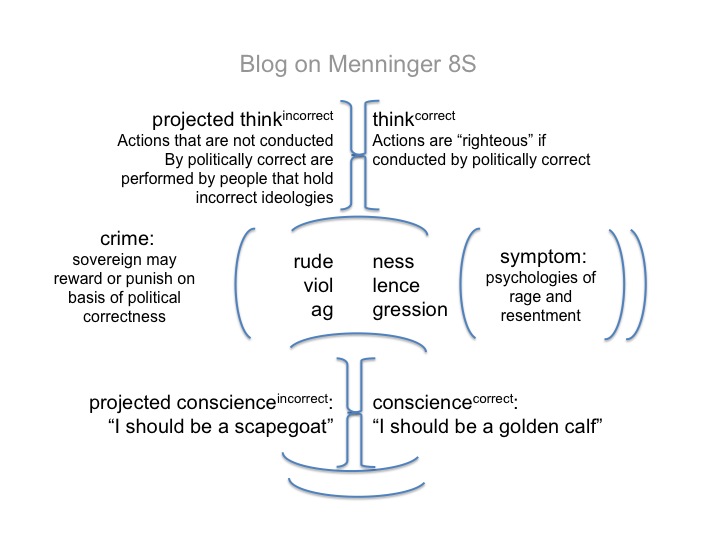Thoughts on Whatever Became of Sin? By Karl Menninger MD (1973) 8AA
Remember, Menninger was also a Progressive.
At the time of writing, he did not know that “sin” was already being replaced by “political incorrectness”.
Consider the term that he added to the envy set: the sin of affluence.
The horizontal axis becomes:
The crime of unequal outcomes to be punished with policies enforcing “fairness of outcome”(the political incorrectness of affluence(psychology of “equal potential demands equal outcome”))
… Or something like that.
Is the “symptom of the psychology of ‘equal potential demands equal outcome’” the Progressive equivalent of “disposition to covetousness”?
Clearly, on the horizontal axis, the reasons for affluence are misdiagnosed. People do not become affluent because they somehow “cheat” others of equal potential. People become affluent by owning up to what they have and taking opportunities.

